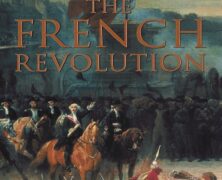Recent events in France ensure that that country remains an important focal point for anyone interested in world affairs. Many of us perhaps fall into the trap of believing that terrorism is a recent phenomenon; it certainly isn’t. The French themselves have been masters of it, in France itself, in Africa (Algeria is a notable example) and elsewhere. The tragic and brutal slaying of innocent people in the streets of Paris and in France’s other cities and towns has precedent. Those of us familiar with the French Revolution from school may know that the guillotine was used to kill the king and later his wife. The names Robespierre and Napoleon ring bells. However, we may not know a whole lot more besides. Christopher Hibbert’s highly readable and detailed account of the Revolution is a real eye-opener. His treatment of the subject is thorough without being exhaustive or overly dense. He is particularly strong on the personalities involved, Mirabeau and Danton being two of my favourites. It all starts with the king. King Louis XVI strikes one as a man unsuited to the throne. He was smallish, with poor posture and reputedly impotent. He liked to read and was disciplined enough to teach himself English. But he liked to eat and his wife, Marie Antoinette, felt the need to deny him access to pastry. She, for her part, was Austrian and rumours abounded of her sexual exploits and infidelity. It was eight years before she bore her husband their first child. In the late eighteenth century, about 26,000,000 people lived in France, the vast majority of them in the countryside, working in agriculture. Poverty was widespread; Hibbert quotes two English travellers’ observations of “terribly ragged” children and peasants with the appearance of “ravenous scarecrows.” Taxes...

